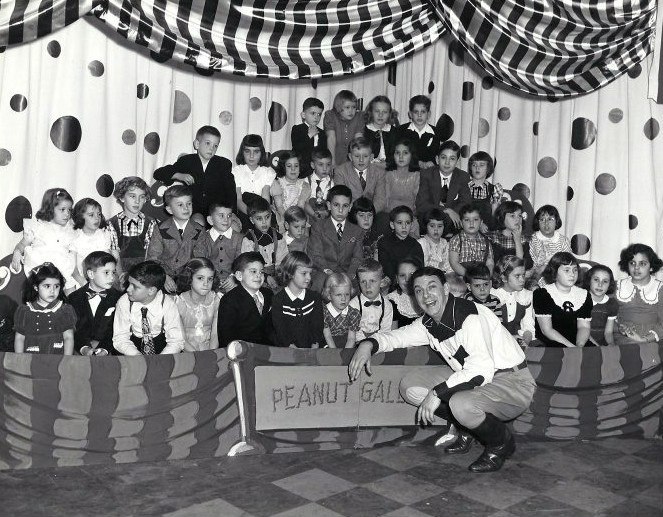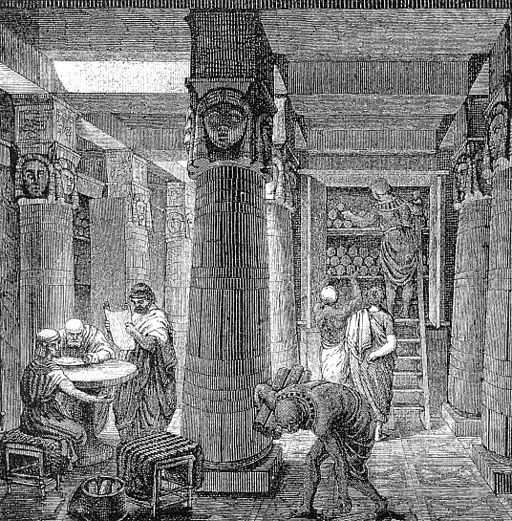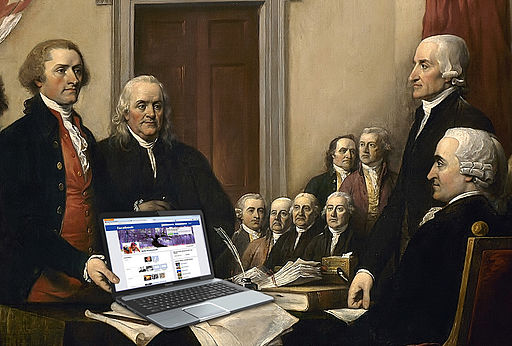 Buffalo Bob Smith of “The Howdy Doody Show” with the Peanut Gallery
Buffalo Bob Smith of “The Howdy Doody Show” with the Peanut GallerySome may remember the 1950s television program “The Howdy Doody Show” and its studio audience of children who were known as the Peanut Gallery. The show started on radio in 1943 and adopted the designation of peanut gallery for its audience from vaudeville, where it referred to the rowdy denizens of the cheap seats, who often heckled the performers and pelted them with peanuts. In adopting the peanut gallery term “The Howdy Doody Show” cleaned up the associations from earlier uses of the term to the point it became synonymous with that program, at least for that generation. As a side note, the comic strip Peanuts borrowed its name from the Howdy Doody version of the peanut gallery.
The vaudevillian archetype of a peanut gallery has never gone away, of course, as there have always been venues for the unruly mob to express themselves in anonymity. In the past, the opportunities were limited. Now, anyone with a computer and a desire to vent can post a comment online. Never before has the peanut gallery found a forum with as wide a reach as the internet. They are no longer the cute, freckled tykes of “Howdy Doody,” however; now they are known as Trolls.
Many online publications, which at first welcomed comments from their readers for various reasons, have been rethinking their policy after discovering a comments section that is not moderated eventually descends into a cesspool of vitriol largely stirred up by trolls, while moderating a comments section costs time and money. Some publications have decided to do away with their comments section altogether (the policy this website follows, by the way). There are websites which have found some success encouraging commenters to moderate each other with up or down votes on comments.
Anonymity online does a great service promoting and protecting free speech, even when the words someone chooses to use when exercising their right to free speech
aren’t agreeable or important. While anonymity encourages the outspokenness of someone who has a worthwhile contribution to make, it does the same for someone who doesn’t. Who is to decide what is worthwhile? You are, for yourself, as others are, for themselves. Trolling can’t be legislated away or even moderated away entirely. It can be shut out, though unfortunately at the price of shutting out worthwhile comments as well. In the end, the best practice for many internet users is probably still the one expressed by some sage in the early days of the internet who advised “Don’t feed the trolls.” They’ve got their own peanuts, after all.
– Techly 
 By VS6507 (Own work) A sign saying “don’t feed the trolls” on a mountain Fløyen in Bergen, Norway
By VS6507 (Own work) A sign saying “don’t feed the trolls” on a mountain Fløyen in Bergen, Norway







